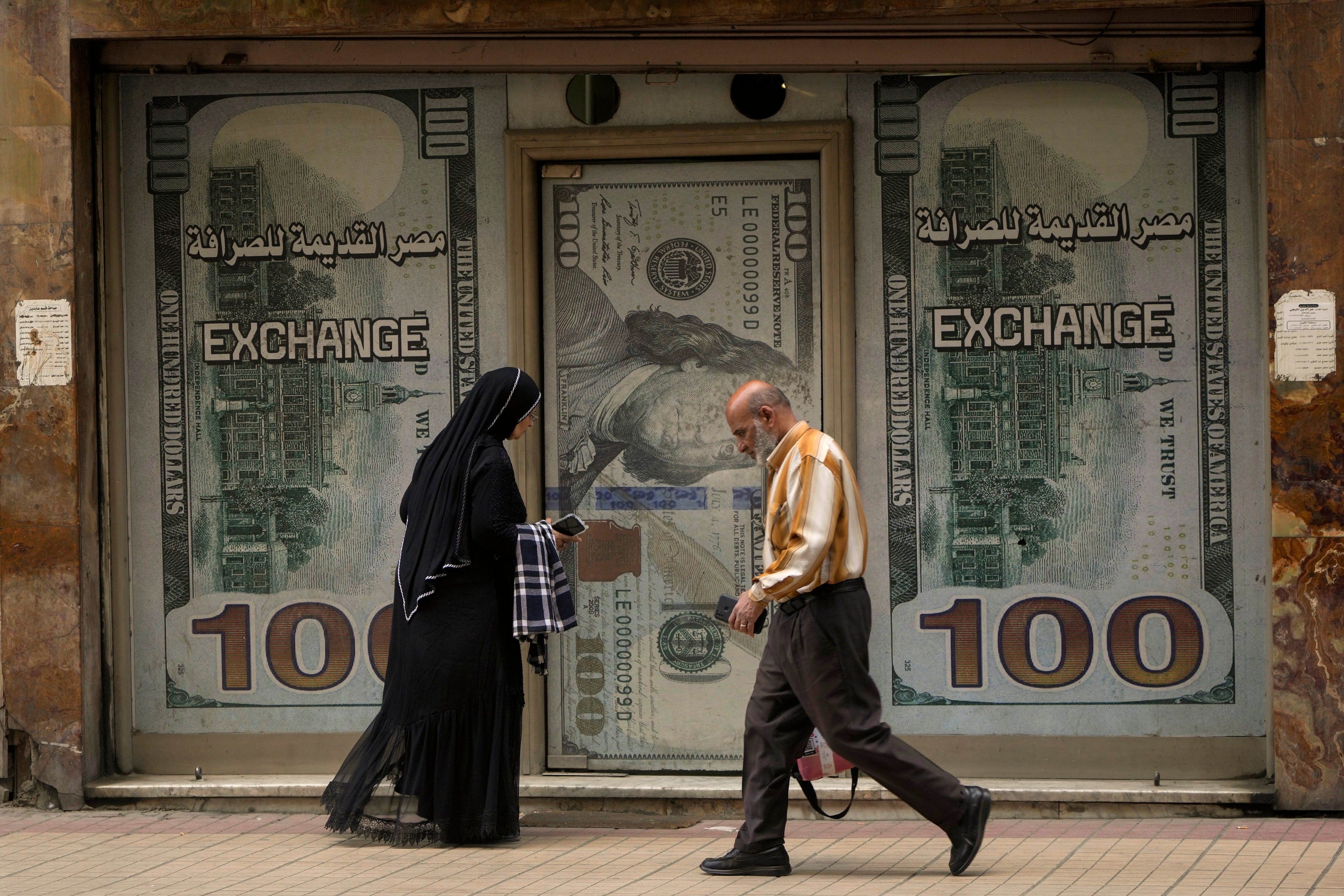Egypt’s currency edges higher against the US dollar after price hikes
Egypt's local currency is sliding against the U.S. dollar after recent increases in fuel prices and subway fares

The Egyptian pound is sliding against foreign currencies, inching nearer to 50 per U.S. dollar after a recent hike in subway fares and fuel prices.
The currency reached 49.16 to the U.S. dollar Tuesday, the Central Bank of Egypt posted on its website.
In June and July, the Egyptian pound ranged between 47 and 48 to the dollar after it floated in March and lost around 60% of its value, down as low as around 30 to the dollar.
The new exchange rates come a week after the International Monetary Fund (IMF) completed its third financial review of Egypt, allowing the government to draw $820 million. That amount is part of a $8 billion bailout loan intended to support Egypt’s ailing economy, slowed by a shortage of foreign currency, skyrocketing inflation, and turmoil in the Red Sea due to attacks by Yemen’s Houthi rebels.
“The Egyptian authorities’ recent efforts to restore macroeconomic stability have started to yield positive results. Inflation remains elevated but is coming down. A flexible exchange rate regime remains a cornerstone of the authorities’ program,” the IMF said last week.
Egyptians have grappled with a soaring inflation, including an announcement late last month by the Petroleum Ministry that fuel prices would increase by about 10%.
The last fuel price increase occurred in March with the government attributing price hikes to rising costs of fuel due to attacks in the Red Sea and a depreciation of its currency.
Houthis have been attacking commercial ships in the Red Sea in retaliation against Israel’s ongoing war in Gaza. Oil, natural gas, and grain among other products travel through the sea routes separating Africa and the Arabian Peninsula en route to the Suez Canal, where 12% of the world’s trade typically passes.
Subway fares in Cairo also officially increased as of last week, according to the National Authority for Tunnels, which administers and operates the Cairo metro. Increased fare prices now range between 2 to 5 Egyptian pounds.
Egypt reached a deal with the IMF this spring to more than double the size of its bailout to $8 billion. The price hikes have been deemed necessary to meet conditions set by the IMF for further assistance to the country.
Bookmark popover
Removed from bookmarks